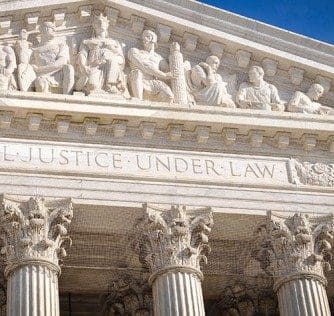
Date: June 2013
In two cases that will be widely viewed as victories for employers, the U.S. Supreme Court today decided two important cases under Title VII of the Civil Rights Act of 1964. In both decisions, the Court was divided 5-4, along ideological lines, with the more conservative justices siding with the employers.
“Supervisor” Defined
In Vance v. Ball State University, the Supreme Court addressed the definition of a “supervisor” in harassment cases. In two 1998 decisions, the Court had held that, in cases involving workplace harassment, employers are directly responsible for harassment by a supervisor; if harassment is committed by a co-worker, employers are responsible only if they fail to control working conditions.
In those cases, the Court did not define “supervisor,” and over the past 15 years, a split over the definition has developed in the federal courts. One group of courts has held that a supervisor is someone who directs and oversees an employee’s daily work, and other courts have held that a supervisor is only someone who has the authority, on behalf of the employer, to hire, fire, demote, transfer or discipline the employee.
In Vance, the Supreme Court decided that a supervisor is someone who is “empowered by the employer to take tangible employment actions” against the complaining employee. That means someone who has the power to hire, fire, or discipline the employee. The Court’s decision means that, when employees bring claims involving those who direct and oversee an employee’s daily work but who do not have decision-making authority, employer liability depends upon whether the employer failed to control working conditions.
Employer Retaliation
In the second decision, University of Texas Southwestern Medical Center v. Nassar, the Supreme Court addressed how employees may prove retaliation based on protected activity under the discrimination statutes.
Under the anti-retaliation provisions of these laws, it is unlawful for employers to fire, demote, harass or otherwise take adverse actions against employees because they have complained about discrimination. In recent years, retaliation charges submitted to the EEOC have sharply risen, from around 18,000 in 1997 to nearly 38,000 in 2012.
In today’s decision, the Court held that employees must show that “but for” the employer’s improper motive – that is, the “retaliation” – the employer would not have taken an adverse action against the employee. The lower courts had been divided over whether the “but for” standard was the correct one, or whether employees could prove retaliation under a “mixed motive” standard that would require proof only that the improper motive was one of several reasons for the employer’s decision.
Lessons For Employers
The two decisions signal that maintaining proactive employment policies and practices in the workplace is critical. Under the Vance case, proactive employer policies relating to discrimination and harassment are of paramount importance, while the Nassar case makes it clear that employers may take employment actions that are appropriately documented and supported, even if an employee has complained about discrimination in the past.
Social Networking and the Workplace Prepare Now for the Obamacare Employer Mandate Unique Legal Issues Affect Employers on Arizona Indian Reservations OSHA Clash with State Safety Regulators a Concern to Employers Restrictive Covenants in Employment Agreement Found to Be Too Broad Confidentiality in Investigations: A Trap for Unwary Employers? The Affordable Care Act: Things to Know for 2011 U.S. Supreme Court Upholds Arizona’s Employer Sanctions Law Avoiding The Threat of Genetic Discrimination Court Suspends NLRB-Required Notice of Collective Bargaining Rights The Fair Labor Standards Act Accommodating Pregnant Employees IRS Program Offers Employers a Break for Misclassifying Workers Employee Voting Rights: Arizona Employer Obligations Obamacare Update: Employer Mandate Pushed Back to 2015 Supreme Court Decides Cases in Favor of Employers Reducing the Risk of Wrongful Termination Employers, Large or Small: Obamacare Requires Action by October 1 Minimum Wage: Don’t Overlook Arizona’s Higher Requirement FMLA: Communicating with Employees on Leave NLRB Takes Aim at Employee Handbooks

